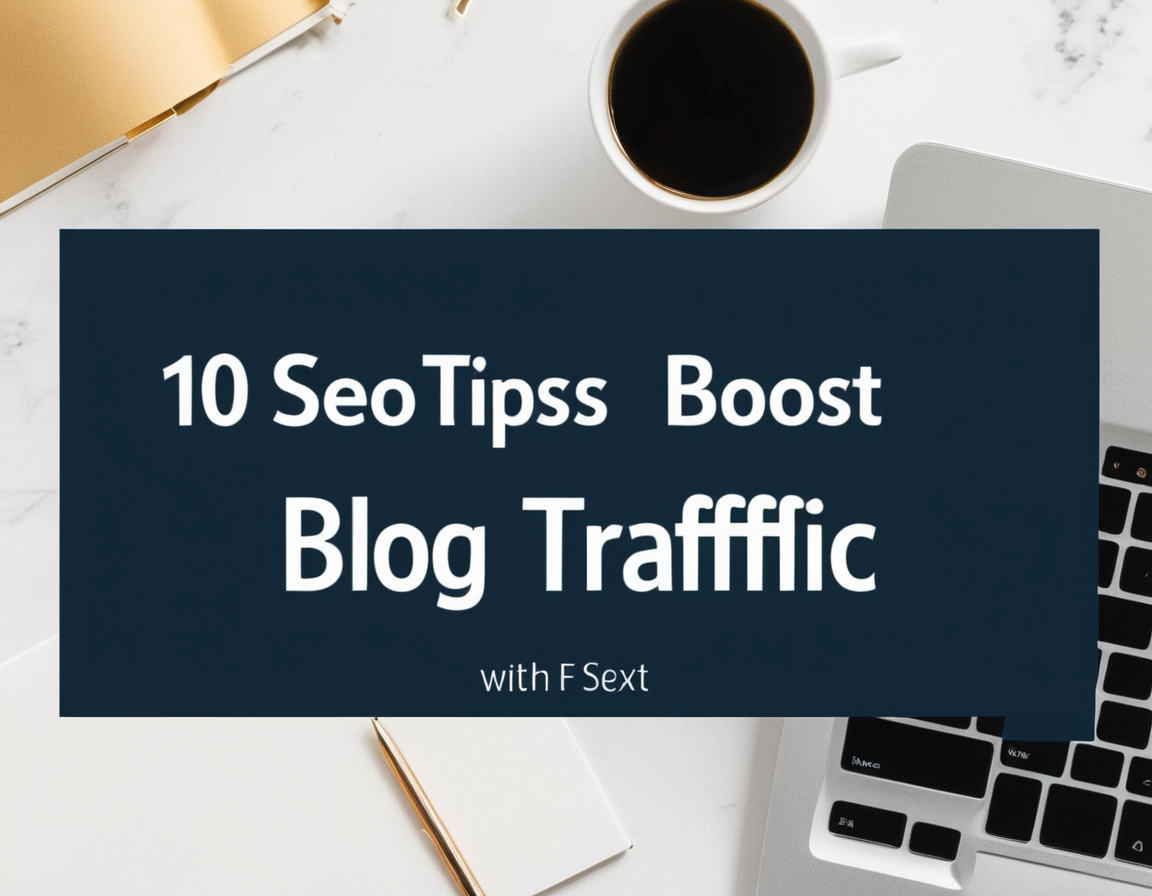: “10 SEO Tips to Boost Your Blog’s Traffic: Master the Basics”

Search engine optimization, or SEO for short, is an essential skill for any blogger who wants to increase their online visibility and attract more visitors to their website. In this article, we will explore ten foundational tips that you can use to improve your search rankings and boost traffic to your blog. Learn more about 10
1. Conduct Keyword Research: The foundation of any solid SEO strategy is keyword research. Identify relevant keywords for your niche and incorporate them naturally into your . Use Google’s Keyword Planner or other tools like SEMrush or Ahrefs to discover valuable long-tail keywords that can attract more traffic.
2. Optimize Your Meta Tags: Make sure to optimize the tags, meta descriptions, and URL slugs for each blog post you create. These elements provide important information about your to search engines and help improve click-through rates from SERPs (Search Engine Results Pages).
3. Produce High-Quality : Search engines reward websites that offer value through high-quality . Create engaging, original articles and invest time in researching credible sources for facts, figures, and quotes to support your claims. Regularly update your blog with fresh to keep readers coming back.
Learn more about SEO
4. Utilize Header Tags Correctly: Use header tags (H1, H2, H3) correctly throughout your posts to help search engines understand the structure of your better. This improves readability for users and aids in indexing by crawlers.
5. Include Internal Links: Interlinking your blog’s pages helps users navigate more easily while also providing SEO benefits. It signals search engine bots about the relevance and importance of different sections within your site, allowing them to better understand its hierarchy.
6. Leverage Social Media: Share links to your new posts on social media platforms like Twitter, Facebook, LinkedIn or Instagram, which can help drive traffic back to your blog. This not only boosts engagement but also informs search engines that your website is active and relevant.
7. Optimize for Mobile Devices: With more people accessing the internet via mobile devices than desktops, ensure that your site’s design caters optimally to these users. Responsive designs adapt well across various screen sizes, enhancing user experience (UX) which is a crucial factor in search engine rankings.
8. Implement Site Speed Optimization: Page speed significantly impacts user experience and has been confirmed as ranking signal by Google. Reduce heavy images or JavaScript code to improve loading times and consider using caching plugins for added performance boosts.
9. Earn Quality Backlinks: Link building, although not directly within your control, can greatly impact your website’s authority in search results. Reach out to influencers or other bloggers for mentions or write guest posts on reputable sites as strategies to gain high-quality backlinks. Learn more about Tips
10. Monitor and Analyze Your Results: Regularly review analytics data from tools like Google Analytics, SEMrush, or Ahrefs to track progress, identify areas of improvement, and make adjustments accordingly. This iterative approach will help you stay ahead in the competitive world of online creation.

Remember that SEO is an ongoing process – what works today may not work tomorrow due to changes in search algorithms or market trends. Keeping abreast with industry updates ensures continuous growth for your blog and overall digital presence.
